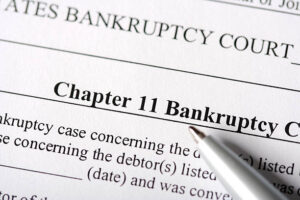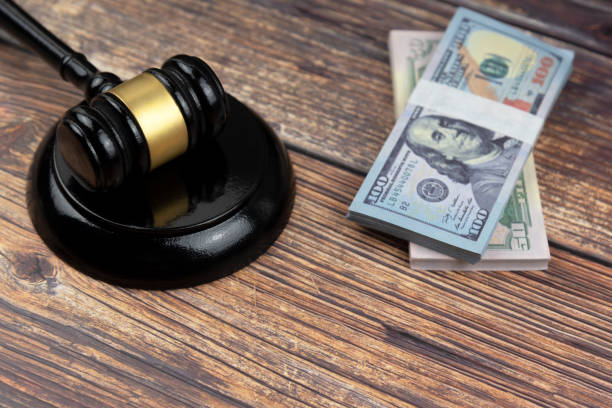United States Bankruptcy Court Florida: Navigating Financial Hardships. In today’s fast-paced world, financial stability can sometimes be elusive. Life’s unexpected twists and turns can lead individuals and businesses alike into situations where managing debts becomes a challenge. The United States Bankruptcy Court in Florida serves as a crucial institution that offers relief and a fresh start to those facing overwhelming financial burdens. In this article, we’ll dive into the workings of the United States Bankruptcy Court in Florida, exploring its purpose, processes, and the assistance it provides to individuals and businesses.
Bankruptcy is a legal process that provides individuals and businesses struggling with debt an opportunity to alleviate their financial burdens and make a fresh financial start. The United States Bankruptcy Court plays a crucial role in overseeing these proceedings.
The United States Bankruptcy Court in Florida serves as the forum where bankruptcy cases are heard and resolved. It provides a structured process through which debtors can seek relief from their debts while ensuring that creditors receive fair treatment.

There are different types of bankruptcy filings, each catering to specific situations. Chapter 7 bankruptcy involves the liquidation of non-exempt assets to repay creditors. It offers individuals a chance to discharge unsecured debts and make a clean financial slate. On the other hand, Chapter 13 bankruptcy is a reorganization plan where debtors propose a repayment plan to gradually pay off their debts over a specified period, usually three to five years. Chapter 11 bankruptcy primarily caters to businesses. It allows them to continue operations while restructuring their debts and finances to achieve long-term stability.
Filing for bankruptcy in Florida requires meeting certain eligibility criteria, which vary based on the type of bankruptcy being pursued. Gathering detailed financial information is crucial for the bankruptcy filing process. This includes income, expenses, debts, assets, and more. Additionally, individuals filing for bankruptcy are typically required to complete credit counseling from an approved agency before proceeding with their case.
The bankruptcy filing process involves the submission of a bankruptcy petition, schedules, and other necessary documents. These documents provide an overview of the debtor’s financial situation. Upon filing, an automatic stay is put into effect, halting all creditor actions, including collection efforts, lawsuits, and foreclosures. A meeting of creditors, also known as a 341 meeting, allows creditors to ask the debtor questions about their financial situation under oath.
Different types of trustees play significant roles in the bankruptcy process. In Chapter 7 cases, a trustee is appointed to oversee the liquidation process and distribute proceeds to creditors. Chapter 13 cases involve a trustee who administers the repayment plan and ensures debtors adhere to their obligations. Chapter 11 trustees manage the reorganization process for businesses, working to create feasible plans for debt repayment and financial stability.
Bankruptcy law allows debtors to keep certain property that is exempt from the liquidation process, ensuring they have a foundation to rebuild their lives. However, non-exempt assets are subject to liquidation in Chapter 7 bankruptcy. The proceeds are used to repay creditors as much as possible.
READ ALSO;
- Deciphering the Importance of the Auto Insurance Declaration Page
- SEO and Social Media Marketing Services: Boosting Your Online Presence
- Exploring the Power of AWS: Your Ultimate Guide to the AWS Cloud Provider
- Tax Credit for College Students: A Guide to Maximizing Your Savings
- Maximizing Efficiency with a Westpac Business Account for Your Enterprise
Moving forward after bankruptcy requires careful planning. Rebuilding credit is possible through responsible financial management, timely payments, and credit counseling. Sound financial planning and management are essential post-bankruptcy. Budgeting and responsible spending can prevent future debt accumulation.
The benefits of bankruptcy court are numerous. One of the primary benefits is the discharge of eligible debts, offering debtors a fresh financial start. Bankruptcy court also facilitates structured debt repayment plans, allowing debtors to gradually settle their obligations. For businesses, bankruptcy court offers the opportunity to reorganize, streamline operations, and regain financial stability.
Understanding Bankruptcy: An Overview
Bankruptcy is a legal process that provides individuals and businesses struggling with debt an opportunity to alleviate their financial burdens and make a fresh financial start. The United States Bankruptcy Court plays a crucial role in overseeing these proceedings.
The Role of the United States Bankruptcy Court
The United States Bankruptcy Court in Florida serves as the forum where bankruptcy cases are heard and resolved. It provides a structured process through which debtors can seek relief from their debts while ensuring that creditors receive fair treatment.
Types of Bankruptcy Filings
Chapter 7: Liquidation Bankruptcy
Chapter 7 bankruptcy involves the liquidation of non-exempt assets to repay creditors. It offers individuals a chance to discharge unsecured debts and make a clean financial slate.
Chapter 13: Reorganization Bankruptcy
Chapter 13 bankruptcy is a reorganization plan where debtors propose a repayment plan to gradually pay off their debts over a specified period, usually three to five years.
Chapter 11: Business Reorganization
Chapter 11 bankruptcy primarily caters to businesses. It allows them to continue operations while restructuring their debts and finances to achieve long-term stability.
Filing for Bankruptcy in Florida
Eligibility Criteria
Before filing for bankruptcy, individuals and businesses need to meet certain eligibility criteria. These criteria vary based on the type of bankruptcy being pursued.
Collecting Financial Information
Gathering detailed financial information is crucial for the bankruptcy filing process. This includes income, expenses, debts, assets, and more.
Credit Counseling Requirements
Individuals filing for bankruptcy are typically required to complete credit counseling from an approved agency before proceeding with their case.
The Bankruptcy Filing Process
Petition and Schedules Submission
The process begins with the filing of a bankruptcy petition, schedules, and other necessary documents. These documents provide an overview of the debtor’s financial situation.
Automatic Stay and Creditor Communication
Upon filing, an automatic stay is put into effect, halting all creditor actions, including collection efforts, lawsuits, and foreclosures.
Meeting of Creditors
A meeting of creditors, also known as a 341 meeting, allows creditors to ask the debtor questions about their financial situation under oath.
The Trustee’s Role
Chapter 7 Trustee
In Chapter 7 cases, a trustee is appointed to oversee the liquidation process and distribute proceeds to creditors.
Chapter 13 Trustee
Chapter 13 cases involve a trustee who administers the repayment plan and ensures debtors adhere to their obligations.
Chapter 11 Trustee
Chapter 11 trustees manage the reorganization process for businesses, working to create feasible plans for debt repayment and financial stability.
Exemptions and Assets
Understanding Exempt Property
Bankruptcy law allows debtors to keep certain property that is exempt from the liquidation process, ensuring they have a foundation to rebuild their lives.
Non-Exempt Assets and Liquidation
Non-exempt assets are subject to liquidation in Chapter 7 bankruptcy. The proceeds are used to repay creditors as much as possible.
Moving Forward After Bankruptcy
Rebuilding Credit
Rebuilding credit after bankruptcy is possible. Responsible financial management, timely payments, and credit counseling can aid in the process.
Financial Planning and Management
Sound financial planning and management are essential post-bankruptcy. Budgeting and responsible spending can prevent future debt accumulation.
Benefits of Bankruptcy Court
Debt Discharge
One of the primary benefits of bankruptcy is the discharge of eligible debts, offering debtors a fresh financial start.
Debt Repayment Plans
Bankruptcy court facilitates structured debt repayment plans, allowing debtors to gradually settle their obligations.
Business Restructuring
For businesses, bankruptcy court offers the opportunity to reorganize, streamline operations, and regain financial stability.
Frequently Asked Questions
1. What is the purpose of the United States Bankruptcy Court? The court serves as a venue for individuals and businesses to resolve their financial difficulties and seek relief from overwhelming debts.
2. Can I choose the type of bankruptcy to file for? Yes, the type of bankruptcy you file for depends on your financial situation and goals.
3. How does bankruptcy affect my credit score? Bankruptcy does have a negative impact on your credit score, but with time and responsible financial behavior, you can rebuild it.
4. Can businesses file for bankruptcy in Florida? Absolutely, Chapter 11 bankruptcy is designed to address the financial challenges of businesses.
5. What should I do if creditors continue to contact me after filing? Inform your creditors about your bankruptcy filing, and they should cease contact due to the automatic stay.
Conclusion
In a world where financial stability can be unpredictable, the United States Bankruptcy Court in Florida stands as a beacon of hope for those facing overwhelming debts and financial challenges. The intricate process of bankruptcy might seem daunting, but it offers individuals and businesses a chance to regain control over their finances and pave the way for a fresh start.
As we’ve explored throughout this article, the United States Bankruptcy Court serves as an essential institution, providing a structured platform for individuals and businesses to seek relief from their debts. From Chapter 7’s asset liquidation to Chapter 13’s reorganization plans and Chapter 11’s business restructuring, the court offers tailored solutions to address various financial predicaments.
Filing for bankruptcy in Florida is a well-defined process, beginning with eligibility criteria and extensive financial documentation. The court’s involvement brings an automatic stay, offering a momentary reprieve from creditor actions, while the meeting of creditors provides a transparent platform for addressing financial concerns.
Trustees, pivotal figures in the bankruptcy process, ensure the orderly administration of cases, whether it’s overseeing the liquidation of assets, managing repayment plans, or facilitating business reorganization.
Bankruptcy is not an end but a beginning. It’s a second chance for individuals to rebuild their credit, practice sound financial management, and prevent future debt accumulation. For businesses, it’s an opportunity to restructure, streamline operations, and work towards long-term stability.
In conclusion, the United States Bankruptcy Court in Florida offers a lifeline to those grappling with financial hardships. It’s a reminder that setbacks are not insurmountable, and with the right approach, individuals and businesses can emerge stronger, wiser, and better equipped to navigate the complexities of financial well-being.
